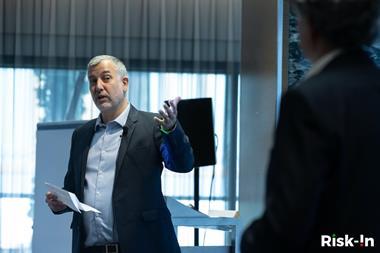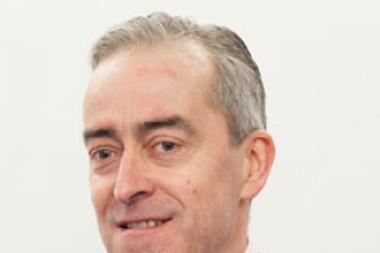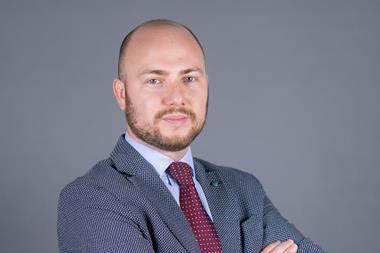Philippines-based Annacel Natividad on resilience and building risk relationships in her frequently catastrophe-hit country
Islands in the storm
An archipelago of over 7,000 islands, hit with 20-30 typhoons a year, 2,000 annual earthquakes and 24 active volcanoes, the Philippines – despite its natural beauty and convivial people – appears as a risk manager’s worst nightmare.
However, despite these natural impediments, the Philippines is the world’s 32nd largest economy and “one of the most dynamic economies in the East Asia Pacific region” according to the World Bank.
“With Filipinos, there is a desire to be resilient,” says Annacel Natividad, CFO & CRO of the Pilmico & Gold Coin Group in the Philippines. “In 2020, we were dealing with major volcanic eruptions and then got hit by COVID. But if something happens, we know we can make it through.
“As we experience so many catastrophic events here in the Philippines, we are prepared. This helps when it comes to implementing risk management here. Last December there was a major typhoon and there was no electricity for almost three months. People continued to report for work, they continued to help each other. People would work and then help with the recovery. People do not need to be encouraged to do this, they volunteer,” says Natividad.
Decades in the making
Natividad has worked at the Aboitiz Group – owners of Pilmico & Gold Coin Group – for nearly 25 years now. Aboitiz, one of the oldest conglomerates in the Philippines, originally operated in shipping more than 100 years ago.
For her first decade at the company, Natividad started as a financial planning manager for Aboitiz’s transport business and then moved into investor relations and corporate finance.
“I was then given the chance to move into risk management and insurance around 2007 when our risk manager left. On top of my finance role, I was given the chance to cover risk management for the shipping and transport business,” she says.
“The shipping business in the Philippines is a challenging one. At the time we were shipping cargo, but also people through our passenger business, which I also oversaw. We carried passengers from one island to another. It is challenging as we are also managing the lives of those passengers.”
Natividad says that sometimes people within an organisation feel that risk management is additional work for them, but with a lean risk team she was able to institutionalise risk management at the group.
In 2011, the Aboitiz transport business was sold to Nenaco and Aboitiz Equity Ventures for ₱4.6 billion ($111.6m). The acquisition saw Natividad move to the parent company, Aboitiz Equity Ventures. “This actually enabled me to focus on implementing risk management across more businesses in the Aboitiz group, such as power, real estate, food and construction.”
Natividad said the first couple of years in the new role concerned building the roadmap of where the group wanted to go with its risk management and ensuring this was consistent across the group’s various businesses.
Building relationships
As Aboitiz expanded into new technologies and power plants, this bought new risks to the business. At this time, the group’s various businesses acquired their own insurance before Natividad was tasked with unifying its approach.
“This meant building relationships with insurance brokers and insurers, and building your reputation and staying true to your work. I call this ‘courageous authenticity’, some would call it ‘radical candour’, but it is about being open with partners in insurance,” she says.
“As a risk manager, you should be able to influence. Risk management is about relationships. Going that extra mile to ensures the executives and management team understand what we are insuring.”
In 2016, Natividad was promoted to be chief risk officer of Aboitiz, taking her role well beyond project risk and insurance to look at the strategic risk of the entire group.
“It was important to integrate our risk management work with the strategy team to ensure that our risks are aligned with our strategic objectives. We hold discussions with operations teams at our various sites to reach an agreement on our major risks,” she says. “This is also a great way to create a risk culture across the entire group.”
Back to the future
In January 2020, Natividad returned to the finance roots from her early days at the business when she was appointed chief finance officer of Pilmico Food Corporation, the food business unit of Aboitiz. She maintained her risk duties, including taking oversight of finance and risk for Gold Coin Group – an agriculture business acquired by Pilmico in 2019.
The timing of this duel role was complicated by the arrival of COVID which meant that Natividad was unable to even meet her new team. “It was hard for me not meeting the team in person. You want to establish a working relationship. It was a challenge and then we were focused on the implications of COVID.
“I like risk management as it is not just focused on operations, but also strategic in nature. It is not just the day-to-day, but ensuring the company can achieve its business objectives and the reasons it is in business,” she says.
In 2019, Natividad was also awarded The Don Ramon Aboitiz Award of Excellence (DRAAE) – the highest and most coveted award given to any team member or team leader in the Aboitiz Group.
Looking forward, Natividad says she is most interested in working with the new generation of the Aboitiz Group. “We call the young Aboitiz employees the fifth generation of the business and I’m very focused on helping them.”
In terms of future risk focus, as Natividad is currently in the group’s food business, supply chain risk looms large, alongside geopolitical risk and the interconnectivity of risk. As those risks loom and the Philippines continues to suffer catastrophic events, Natividad can be assured that her country and organisation’s resilient streak will again prove vital.
Annacel Natividad is CFO & CRO of the Pilmico & Gold Coin Group – Philippines




















No comments yet